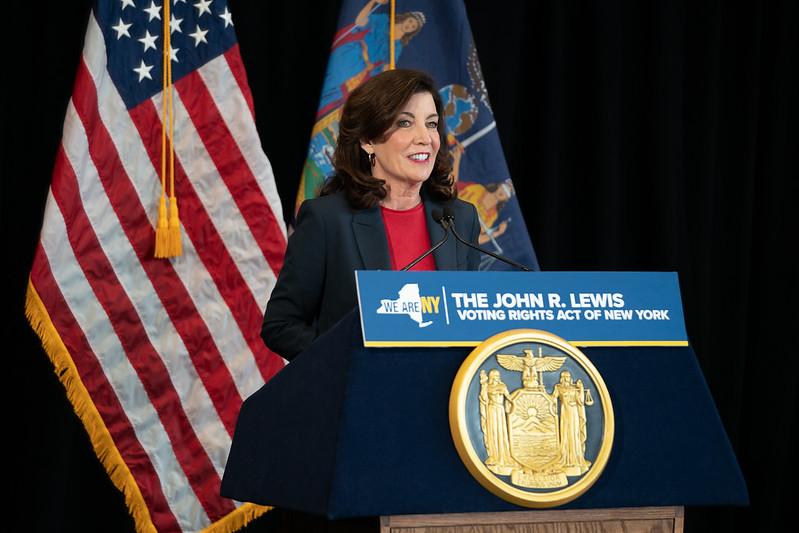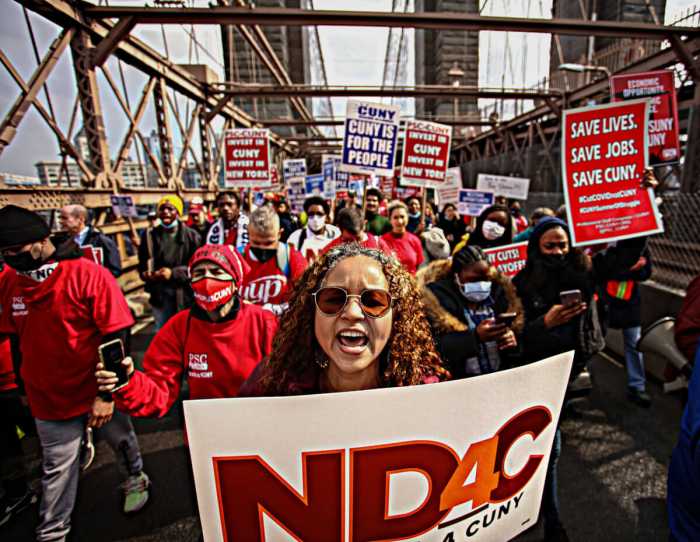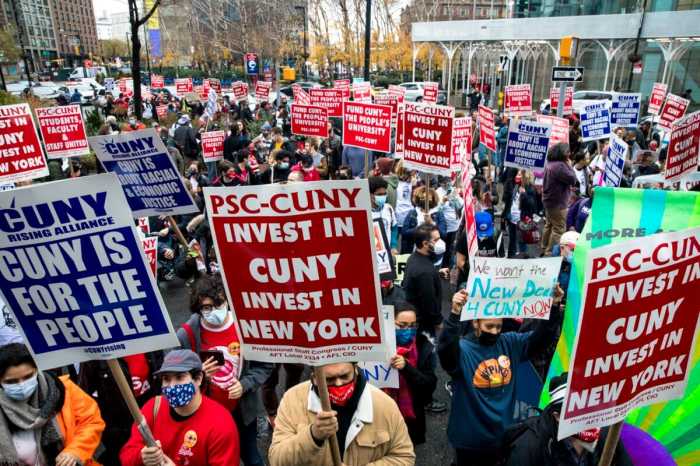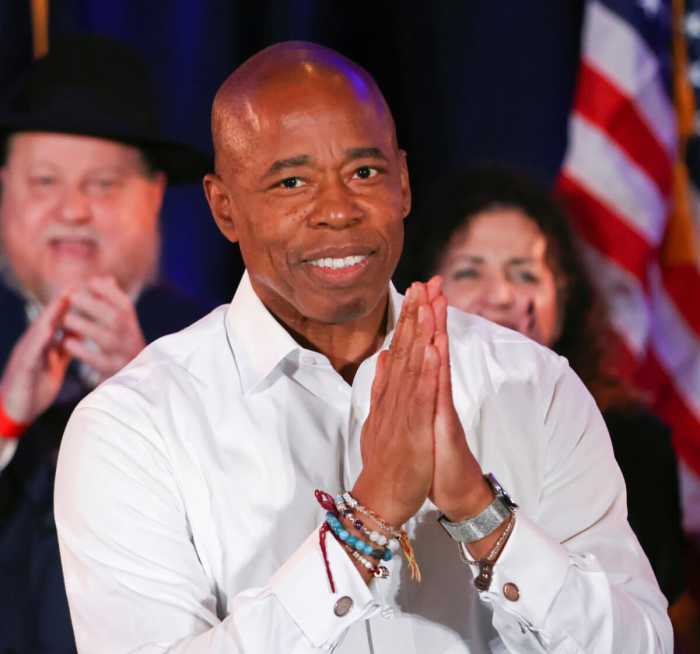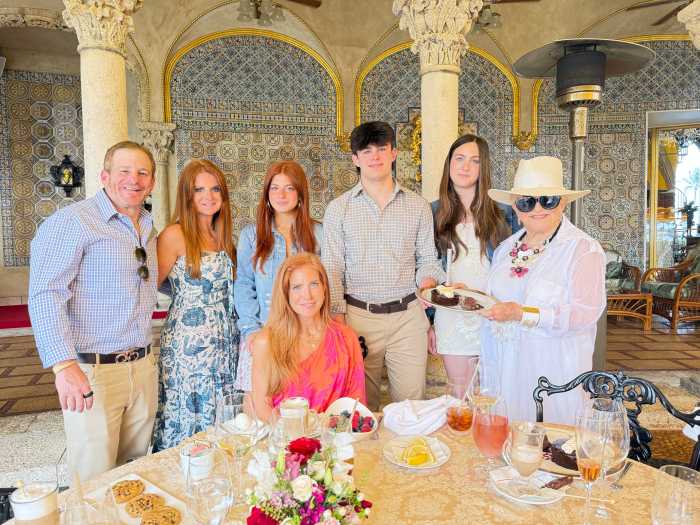Just in time for Juneteenth, Governor Kathy Hochul gathered with several lawmakers at CUNY’s Medgar Evers College Monday to sign the John R. Lewis Voting Rights Act of New York into law.
Hochul said it was important to sign this package of voting rights legislation, named after Lewis – a late-congressman and civil rights leader, on Juneteenth – a day that commemorates the emancipation of the last enslaved African Americans, because voting restrictions have primarily been used to disenfranchise Black voters.
Additionally, the governor said, the bills come at a time when Republican-controlled legislatures across the country are making a concerted effort to restrict voting rights.
“Across the country, we’re seeing stricter voter ID laws, shorter early voting periods and more burdens when you’re trying to just vote by mail,” Hochul said. “We’re seeing people purged on voter rolls. We’re seeing attacks play out in real time. The assaults from the Republicans, the roadblocks seem to be never ending. Here, in our state, we are not bystanders, we are upstanders. We’re gonna stand up to these injustices. We don’t just say something, we do something. Because that’s what John Lewis called us to do. He fought for justice. He fought for the right to vote until the very day he died.”
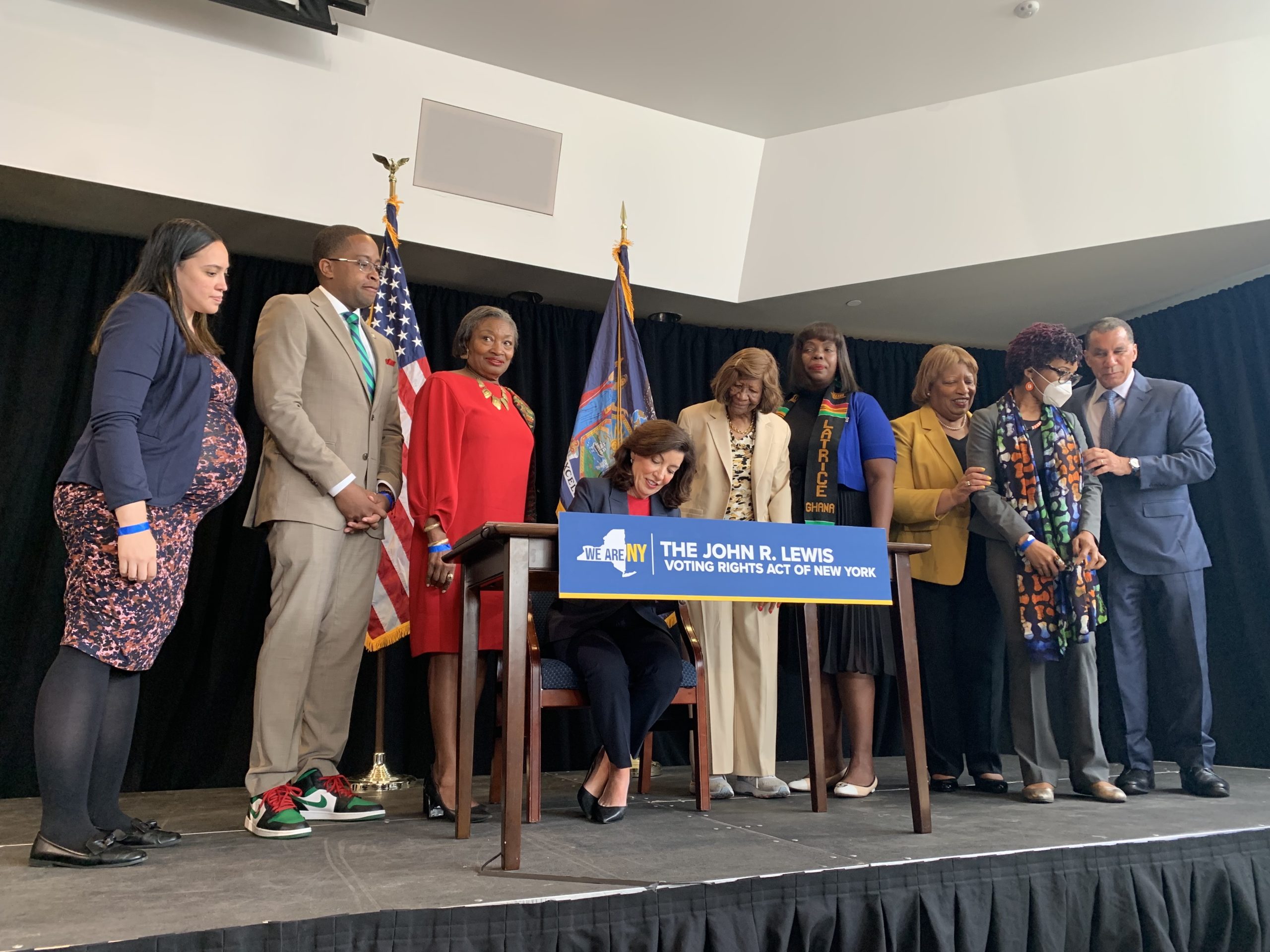
Joining Hochul were state Senate Majority Leader Andrea Stewart-Cousins (D – Westchester), the legislative package’s sponsors state Senator Zellnor Myrie (D – Brooklyn) and Assembly Member Latrice Walker, National Association for the Advancement of Colored People (NAACP) board member Hazel Dukes and several other lawmakers and advocates.
Hochul said they chose to hold the bill signing at Medgar Evers College, a site picked by Dukes, because Evers himself, also a civil rights activist, was confronted with blatant voter suppression efforts when he tried to vote in 1946.
“We think about Medgar Evers, who was trying to vote in 1946 when a gang of white men surrounded him at the courthouse. They stopped him from casting his vote,” Hochul said. “That had to be so dehumanizing for that young man who just wanted to do what he thought was his inalienable right as an American citizen. But he would not be deterred. For two more decades, he fought on. He spent long days and nights, trying to fight for a more equal, more just, righteous America.”
The bills signed today would give members of marginalized communities the right to bring civil lawsuits at the state level in cases of voter suppression and dilution, expand language access at the polls and establish a statewide database for voting and elections data.
The language access law would increase the number of languages ballots must be offered in at poll sites from 4 to 14 in New York City. Plus it would require language access in other parts of the state that currently have no requirement for providing materials at polling sites in languages other than English.
“If you can’t understand the language that you’re ballot’s in, how can you possibly vote?” Hochul said. “We are changing that as well. And we’re going to change our election laws, so we no longer hurt minority communities.”
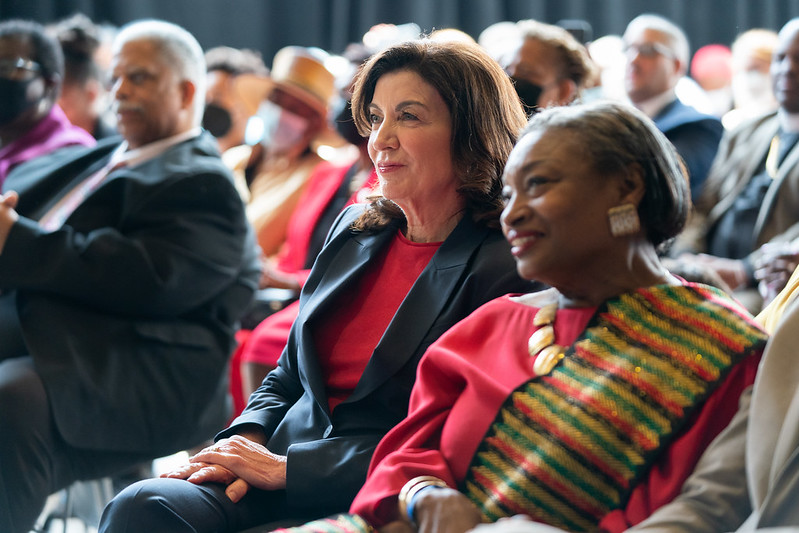
Stewart-Cousins said these bills are needed because voter suppression still happens in New York even though it has some of the most expansive voting rights in the country.
“As we do this, I want you to know that New York state is an example of even some of these things that we’ve seen in the deepest, deepest south,” Stewart-Cousins said. “Nobody is exempt from trying to fight against those powers that would bring us back.”
Myrie said these bills are a way to push back on attacks on democracy like the U.S. Supreme Court’s move to “gut” the Voting Rights Act in 2013 and the storming of the U.S. Capitol by a mob trying to overturn the 2020 presidential election in favor of former President Donald Trump last year.
“As we gather here today, we’re not just celebrating Juneteenth, we are celebrating our fight back against the attacks on our democracy,” Myrie said. “For all New Yorkers in every corner of this state, if your vote has been suppressed, if you had been intimidated, if your election system has made it such that you can’t elect someone that looks like you, if you can’t understand the ballot, if you don’t have the resources to get to the polls, we got your back today.”


